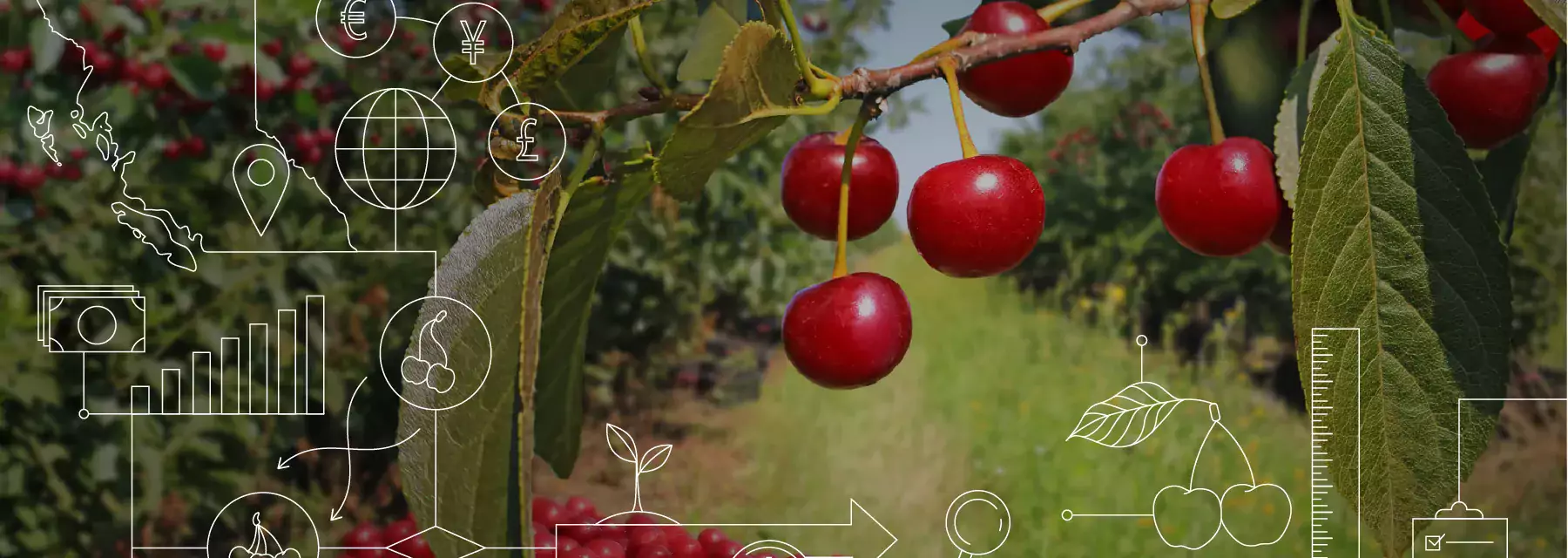
Agri-Food Canada
Improving Cherry Grading | Student Capstone Project
With the majority of B.C.’s tree fruit produced in the Okanagan, cherry farming is having a major impact in expanding growth in the agricultural sector.
So it was no surprise when the Summerland Research and Development Centre (Summerland RDC), one of Agriculture and Agri-Food Canada's (AAFC) network of 20 research and development centres, set their focus on supporting the expansion of the sweet cherry industry through the development of new cultivars which ripen later in the season.
For the Summerland RDC, a critical component of its research is building resilient and profitable horticultural systems, and new cultivars of fruits are known to significantly increase the economic growth and success of the horticulture industry.
There are obstacles to overcome during the process of developing the new cherries. Traditionally, in each phase of fruit germplasm evaluation, the selection and appraisal of fruit traits are carried out manually. This involves repetitive tasks such as fruit counting, size measurement, and color classification. This leaves the tree fruit breeding process vulnerable to worker fatigue and subjectivity, resulting in errors and inconsistencies in the fruit traits data collected.
Recently, Agri-Food Canada enlisted the help of a team of students from the University of British Columbia’s Master of Data Science Okanagan program to help AAFC improve the overall efficiency of the tree fruit breeding process by providing unbiased and precise data on sweet cherry traits in an expedited fashion, while avoiding cost arising from unproductive procedures and human errors.
UBC’s MDS-O students used machine vision, image analysis and machine learning to help automate the selection and appraisal of the fruit traits process and created an application capable of generating accurate counts of sweet cherries. The application also captures the cherries respective size and color information, surpassing the performance of humans completing the same task in terms of both time and accuracy.
As a result, the AAFC was able to support opportunities to grow agriculture’s contributions to the economy and society by generating cherry cultivars that meet consumer preference, have market appeal and are adapted to local growing conditions.